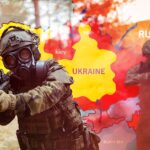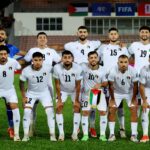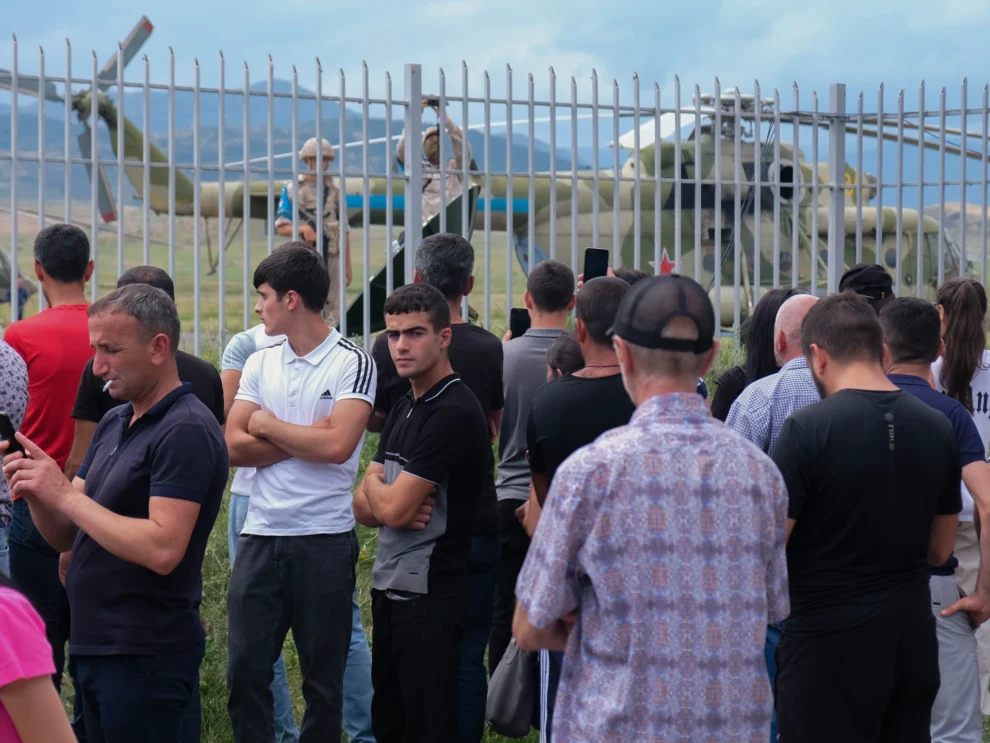Statement comes as the EU hosts talks between the leaders of Azerbaijan and Armenia in Brussels.
Azerbaijan has accused Russia and Armenia of failing to fulfil a ceasefire deal in the Nagorno-Karabakh enclave as Moscow offered to host new peace talks while the European Union urged Baku and Yerevan to refrain from “violence and harsh rhetoric”.
The Azeri government’s criticism of Russia on Saturday came as Azerbaijani President Ilham Aliyev and Armenian Prime Minister Nikol Pashinyan met in Brussels for talks aimed at resolving their decades-long conflict for the control of Nagorno Karabakh.
Since the collapse of the Soviet Union, the neighbours have fought two wars over the small mountainous enclave that is part of Azerbaijan but populated by about 120,000 ethnic Armenians.
After heavy fighting and a Russian-brokered ceasefire, Azerbaijan in 2020 took over areas that had been controlled by ethnic Armenians in and around the mountain enclave.
Baku and Yerevan have since been discussing a peace deal in which Russia is also pushing to retain a leading role and in which the two countries would agree on borders, settle differences over the enclave and unfreeze relations.
Tensions, however, have flared again with Azerbaijan blockading and closing the sole land link between Karabakh and Armenia earlier this week.
It blamed the shutting of the Lachin corridor – which is policed by Russian peacekeepers – on “smuggling” by aid agencies.
Russia said on Saturday that it was ready to organise a three-way meeting with Armenia and Azerbaijan at the level of foreign ministers and said this could be followed up with a Moscow summit to sign a peace treaty.
It said an integral part of this pact should be “reliable and clear guarantees of the rights and security of the Armenians of Karabakh” and the implementation of earlier agreements between Russia, Azerbaijan and Armenia.
Baku – which insists that any security guarantees for Karabakh’s Armenian population should be provided at the national level and not via an international mechanism – responded angrily.
It said Russia’s statement “causes disappointment and misunderstanding” and contradicts Moscow’s declarations of supporting Azerbaijan’s territorial integrity.
“The Russian side did not ensure full implementation of the agreement within the framework of its obligations,” it said, adding that Moscow “did nothing to prevent” Yerevan’s military supplies from reaching separatist forces in Karabakh.
Meanwhile, in Brussels, European Council President Charles Michel, who mediated talks between the Azeri and Armenian leaders, said their exchanges had been “frank, honest and substantive”.
“Real progress depends on the next steps that will need to be taken in the near future. As a matter of priority, violence and harsh rhetoric should stop in order to provide the proper environment for peace and normalisation talks,” Michel said.
“The population on the ground needs reassurances, first and foremost regarding their rights and security,” he added.
Michel said he also expressed the EU’s encouragement for Azerbaijan to talk directly to the Karabakh Armenians to develop confidence between the parties.
It was not clear how Aliyev reacted as he and Pashinyan left without briefing reporters.
The European Council president said he intended to organise a new meeting between Aliyev and Pashinyan in Brussels and another in Spain in October involving German Chancellor Olaf Scholz and French President Emmanuel Macron.
Besides the EU, the United States has also been pushing the sides to reach a peace deal.
Russia, the traditional power broker in the region, has been distracted by the war in Ukraine and risks seeing its influence diminished.
Source: Al Jazeera











